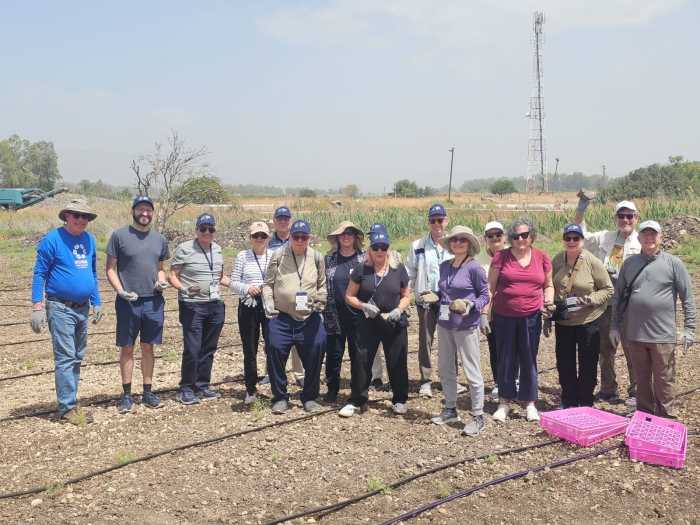By Doug Chandler
In the past few weeks, as the search for a new poet laureate in Queens proves to be harder than anyone thought, much has been written about the state of poetry in the borough. One article, appearing on the front page of “The New York Times,” quoted Hal Sirowitz, the recently retired laureate, as calling Queens “the forgotten borough,” overlooked in the shadow of Manhattan.
No one, though, appears to have told that to Lucy Angeleri, a resident of Forest Hills who died in February at the age of 81.
In the years before she took ill, Angeleri earned her living as a psychotherapist, a jazz pianist and a singer of scat, a form of jazz. She also studied and adopted Zen Buddhism as her philosophy, dabbled in art and played an active role in Democratic politics, according to her husband, Carl, who added: “There was nothing she didn’t do.”
But many of her friends and neighbors will remember Angeleri for something else: her work as poet and as a teacher and advocate of poetry among the borough’s residents.
Angeleri, who died of cancer, published two books of poetry, “Tidings” and “Tidings II: Ten Aspects of Life in Poetry,” and contributed dozens of poems to magazines and literary journals. She also led classes and workshops in poetry throughout Queens, hosted a program on poetry on Queens Public Television and helped organize a circle of writers, Fresh Meadow Poets, described by her husband and others as the first such group in Queens.
Her husband, a retired jazz musician who, at 92, remains lively and spirited, recently discussed Angeleri’s life and work as he arranged a service in tribute to her. The memorial service is planned for Saturday, April 17, at 2 p.m., at the Unitarian Universalist Church of Flushing.
Lucy Angeleri’s poetry almost always focused on life and humanity, said her husband, who broke down several times as he spoke about his wife. The art of poetry, the practice of psychotherapy and the belief in Zen Buddhism were all somehow intertwined for her, he recalled — all related to helping people grow beyond themselves and connect to the larger world.
Perhaps her writing reflected the rich and fascinating life Angeleri led.
Born in New York City and raised in New Rochelle, she grew up the daughter of Joseph Milner, a prominent real-estate broker, and Lucille Milner, a founder of the American Civil Liberties Union. Her mother worked as the ACLU’s executive secretary for 25 years and later wrote a memoir, “Education of an American Liberal.”
She and Carl Angeleri, a native of Natick, Mass., met aboard a cruise ship, where he led the orchestra and she was a passenger.
“We had a shipboard romance,” her husband recalled, adding that they met in 1953 and were married a year later. It was the second marriage for both, he said, and each had children — two sons in Lucy’s case and a daughter in Carl’s. Their children are helping to organize the memorial service, as is Lucy’s twin sister, Mary Lieber of St. Louis.
Angeleri always dabbled in writing, said her husband, who still lives in the small-but-cozy Forest Hills home the couple purchased in 1956.
“She’d wake up in the middle of the night sometimes and have a thought and take notes,” he said, smiling at the memory. “She used to bring a little notebook with her all the time, and every time she heard something or saw something or had a thought, she’d take notes,” which she would later use to write her poems.
Angeleri began leading poetry workshops in Queens after she was approached by the head of the borough’s public library system at a coffeehouse in Manhattan, where she read some of her poems, her husband said. The head of the library, a resident of Fresh Meadows, suggested that Angeleri run a workshop that his system would fund.
The workshops led to the creation of Fresh Meadow Poets, which started off with about 20 members in 1985 and grew to include than 40, said Rhina R. Espaillat, a Dominican-born poet who founded the group with Angeleri.
Espaillat, a former resident of Flushing who now lives in Newburyport, Mass., a coastal town near New Hampshire, said the group included high school teachers, college professors and artists, many of whom had already published some of their poems. But for “many of us,” she added, “the first readings we did in public were engineered by Lucy.”
“She was absolutely fearless,” said Espaillat, who, at the time, had just retired as a high-school teacher and had read her poetry only in school. “She’d read anywhere, and she’d tell us [referring to her audiences], ‘They’re only people.’ ”
Like others in the group, Espaillat has gone on to publish her work, which includes short stories and essays; to lead workshops and other groups; and to win major literary awards. She credits Angeleri with some of that success, saying that her former associate got members of the group “to exchange ideas and trust each other.”
“She’d say, ‘Bring in something about aging, bring in something about music, bring in something written with nothing but nouns and verbs. She’d throw out ideas.”
Espaillat is no longer a member of Fresh Meadow Poets, having moved too far away to attend meetings. But the group’s current members include a Holocaust survivor born in Poland, an educator from Pakistan, several Italian emigres and a number of Russian emigres, said its president, Israel Halpern of Flushing.
Halpern, who has worked as a teacher, a counselor and a business owner, said he has met “a great many people who have been inspired by Lucy — who consider her their muse.”
The group, which now meets in the Angeleri home, receives funds from the Queens Council on the Arts, an organ of the New York State Council on the Arts; the New York City Department of Cultural Affairs; and J.P. Morgan Chase & Co.
The group’s work may be especially important in a place like Queens, the most ethnically diverse area of the country, Sirowitz said, adding that he thinks poetry “can unite people.”
Sirowitz, who completed his three-year term as the borough’s poet laureate in December, has been concerned, as others have, over the search for a new poet laureate. A committee of Queens librarians and professors has been searching for his replacement but has found no one yet to match its qualifications, which state that the poet must have been published, that the poems have to be written in English and that the works be “inspired by the borough.”
Sirowitz said Angeleri was a poet he admired and that, more important, she was a steady presence in the borough.
“I think a lot of poets are fly-by-night,” he said. “But she was consistent. No matter how much she worked on her poetry, she always gave back to the community.”
Lester Speiser, a former principal of Bayside High School and the group’s vice president, put the same thought another way.
Angeleri, he said, “was a spirit and presence touched by poetry and music.” Paraphrasing Robert Browning, he added that she encouraged an atmosphere “where we each felt obligated to reach beyond our grasp.”


































